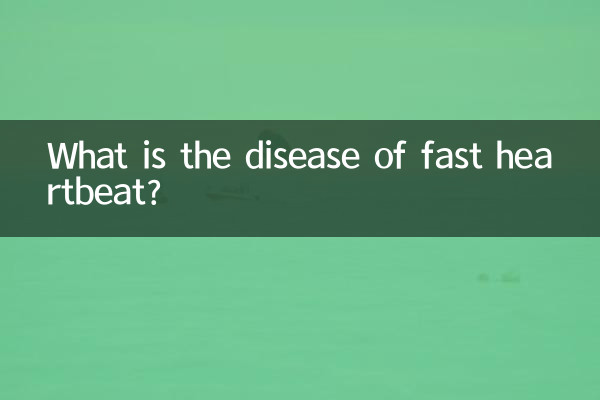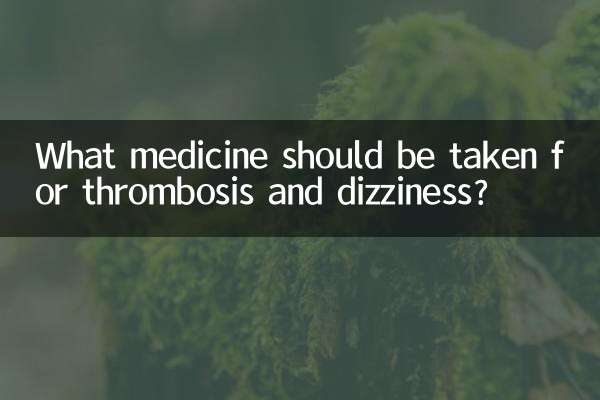What is the disease of fast heartbeat?
In recent years, with the accelerated pace of life and increasing work pressure, more and more people have begun to pay attention to their own health problems. Among them, fast heartbeat (medically known as "tachycardia") is a common symptom. So, what exactly is a fast heartbeat? What could it be caused by? How to deal with it? This article will give you detailed answers based on the hot topics and hot content on the Internet in the past 10 days.
1. Definition and Classification of Rapid Heartbeat

Tachycardia means that the heart beats more frequently than normal (resting heart rate in adults is usually 60-100 beats/minute). Depending on the cause and presentation, tachycardia can be divided into the following types:
| Type | Features | Common causes |
|---|---|---|
| sinus tachycardia | Increased heart rate but normal rhythm | Exercise, anxiety, fever, anemia, etc. |
| supraventricular tachycardia | Sudden stoppage, heart rate can reach 150-250 beats/minute | Abnormalities of the cardiac conduction system |
| ventricular tachycardia | Rapid and dangerous heart rate, which may lead to sudden death | Myocardial infarction, cardiomyopathy, etc. |
2. Common causes of fast heartbeat
According to recent hotly discussed health topics on the Internet, fast heartbeat may be related to the following factors:
| Reason Category | specific factors | Related discussions |
|---|---|---|
| physiological factors | Vigorous exercise, emotional agitation, caffeine intake | high |
| pathological factors | Hyperthyroidism, anemia, hypoglycemia, heart disease | extremely high |
| Drugs or external stimuli | Certain cold medicines, alcohol, nicotine | in |
3. Symptoms and dangers of fast heartbeat
A fast heartbeat not only makes you feel uncomfortable, but it can also hide serious health risks. The following are related symptoms and potential risks that have been hotly discussed by netizens recently:
1.Common symptoms: Palpitation, chest tightness, dizziness, shortness of breath, and even syncope.
2.Potential hazards: Long-term tachycardia may lead to heart failure, arrhythmias, and even sudden death.
3.Popular cases on the Internet: A well-known blogger shared his experience of tachycardia caused by staying up late for a long time, triggering widespread discussion.
4. How to deal with fast heartbeat
For fast heartbeats, experts in the health field have recently recommended the following:
| Countermeasures | Specific methods | Effect evaluation |
|---|---|---|
| Emergency treatment | Take deep breaths, cough, and apply ice to your face (to stimulate the vagus nerve) | Valid for short term |
| Medical examination | ECG, Holter monitoring, thyroid function test | Diagnosed cause |
| Adjustment of lifestyle habits | Reduce caffeine, maintain a regular schedule, and exercise moderately | long term improvement |
5. Recent hot topics and expert opinions
1."Rapid heartbeat after Yang health" phenomenon: Recently, many netizens reported that they experienced tachycardia after recovering from COVID-19, and experts suggested paying attention to the risk of myocarditis.
2.Sudden death of young people: Multiple cases have drawn attention to arrhythmia, and doctors have called for regular physical examinations.
3.Smart bracelet monitors heart rate: Technology products have become health management tools, but attention must be paid to data accuracy.
6. Summary
A fast heartbeat may be a physiological reaction or a sign of disease. Based on the hot discussions on the Internet, we recommend that if you occasionally experience fast heartbeat and no other symptoms, you can improve it by adjusting your lifestyle; if it occurs frequently or is accompanied by discomfort, you must seek medical treatment in time. Health is no small matter. Paying attention to your heartbeat means paying attention to life!
(The full text is about 850 words in total)

check the details

check the details